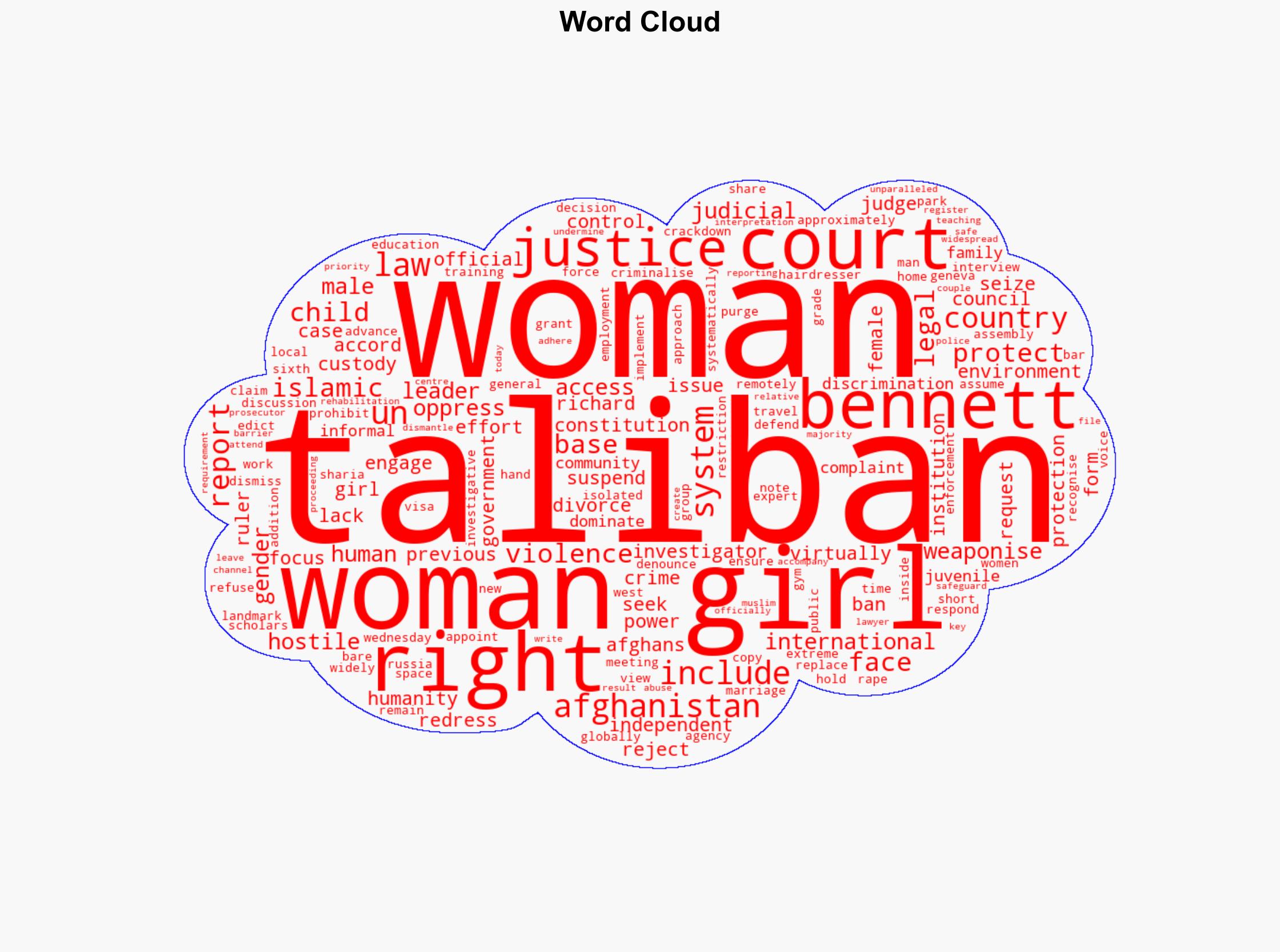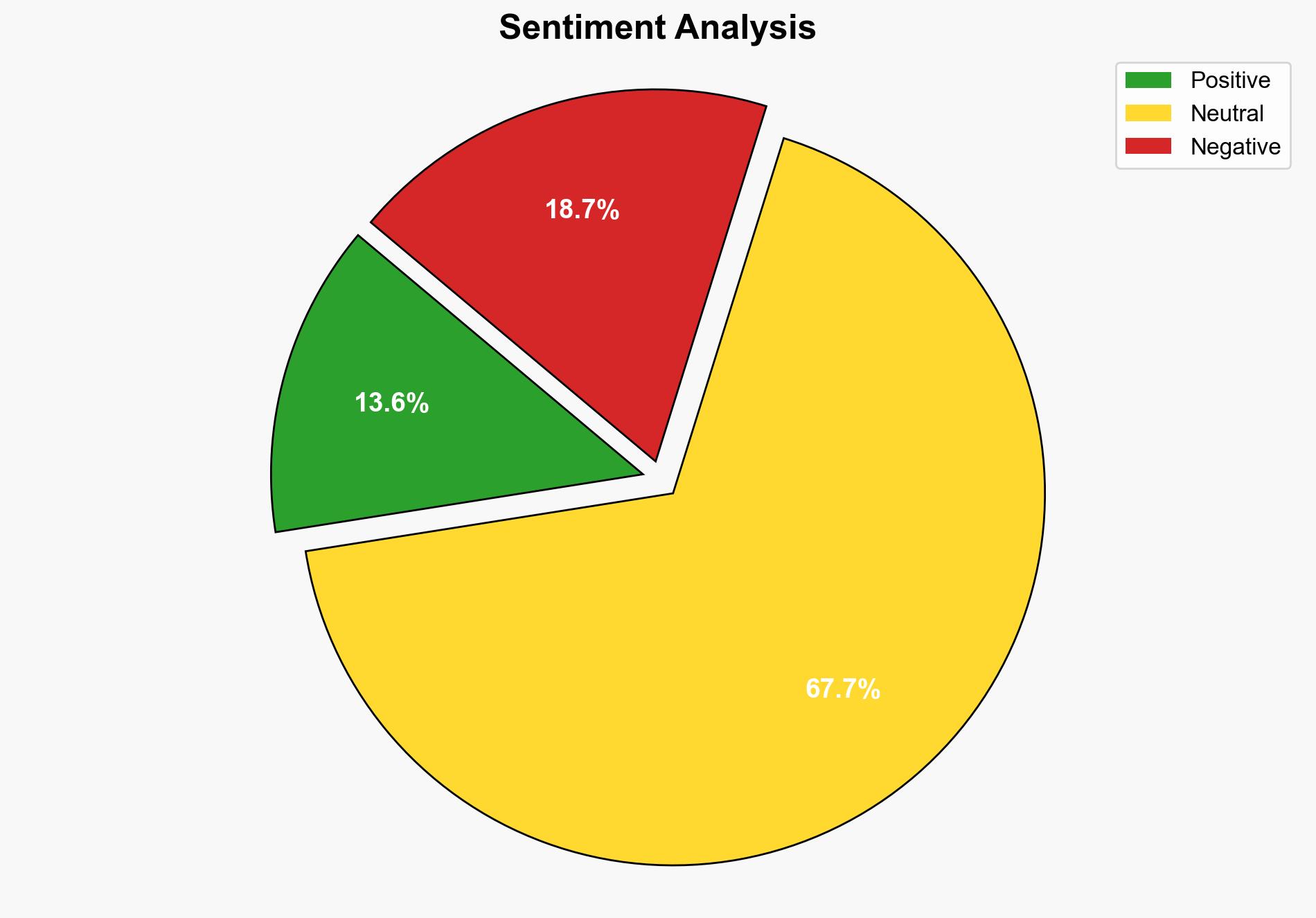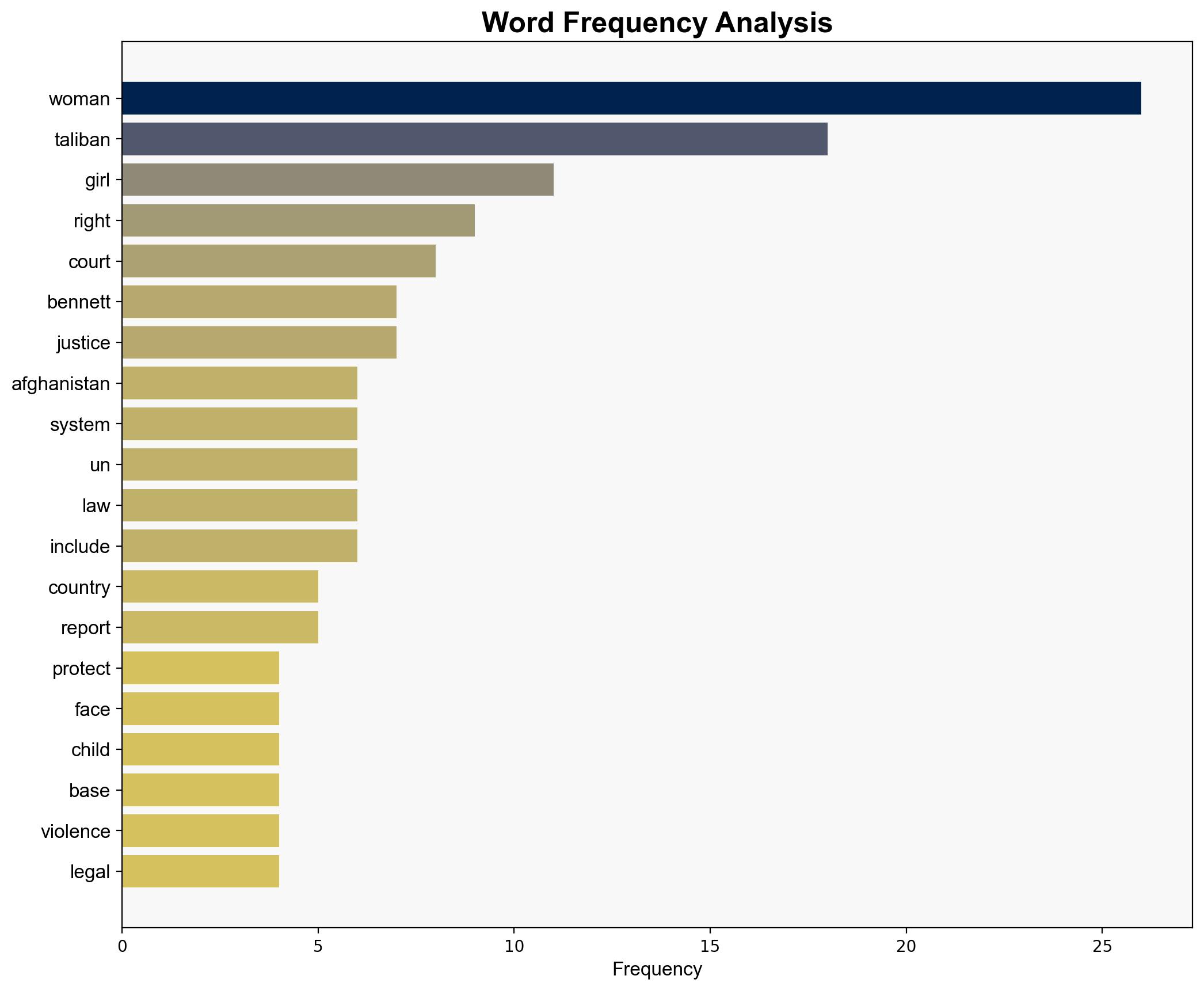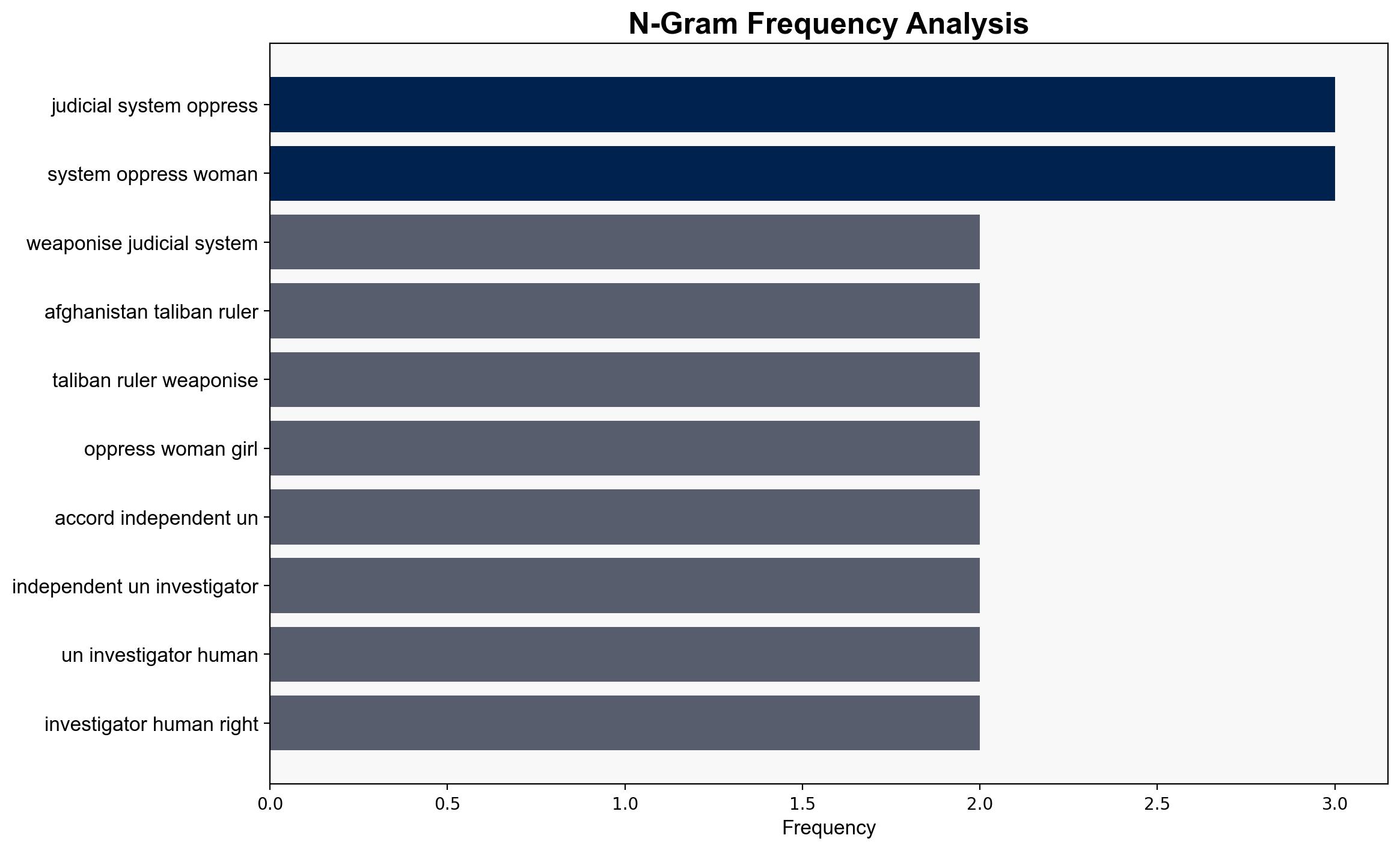Taliban has ‘weaponised’ the judicial system to oppress women UN expert says – ABC News (AU)
Published on: 2025-08-07
Intelligence Report: Taliban has ‘weaponised’ the judicial system to oppress women UN expert says – ABC News (AU)
1. BLUF (Bottom Line Up Front)
The Taliban’s manipulation of the judicial system to oppress women is a strategic move to consolidate power and enforce ideological control. The most supported hypothesis is that this action is a deliberate strategy to suppress dissent and maintain societal control. Confidence level: High. Recommended action: Increase international diplomatic pressure and support local advocacy groups to protect women’s rights.
2. Competing Hypotheses
1. **Deliberate Oppression Strategy**: The Taliban is intentionally using the judicial system to oppress women as part of a broader strategy to consolidate power and enforce strict ideological control.
2. **Unintended Consequence of Ideological Governance**: The oppression of women is an unintended consequence of the Taliban’s strict interpretation of Islamic law, rather than a deliberate strategy to suppress women.
Using Analysis of Competing Hypotheses (ACH), the deliberate oppression strategy is better supported by the systematic nature of the changes, such as the suspension of protective laws and the replacement of judges with those lacking legal training but aligned with Taliban ideology.
3. Key Assumptions and Red Flags
– **Assumptions**: The Taliban’s actions are assumed to be centrally coordinated and ideologically driven. The international community’s response is assumed to be unified and effective.
– **Red Flags**: Lack of direct access to Afghanistan for independent verification. Potential bias in reports due to geopolitical interests.
– **Missing Data**: Detailed internal Taliban communications and decision-making processes.
4. Implications and Strategic Risks
The weaponization of the judicial system could lead to increased internal unrest and international isolation. This may escalate into broader regional instability, potentially affecting neighboring countries. The suppression of women’s rights could also fuel radicalization and recruitment by extremist groups.
5. Recommendations and Outlook
- Enhance diplomatic efforts to pressure the Taliban through sanctions and international isolation.
- Support local and international NGOs working to protect women’s rights in Afghanistan.
- Scenario Projections:
- Best Case: International pressure leads to policy reversal and restoration of women’s rights.
- Worst Case: Continued oppression leads to widespread unrest and regional destabilization.
- Most Likely: Gradual erosion of women’s rights with limited international intervention.
6. Key Individuals and Entities
– Richard Bennett: UN independent investigator on human rights in Afghanistan.
– Taliban leadership: Unnamed individuals responsible for policy implementation.
7. Thematic Tags
national security threats, human rights, regional stability, ideological governance





